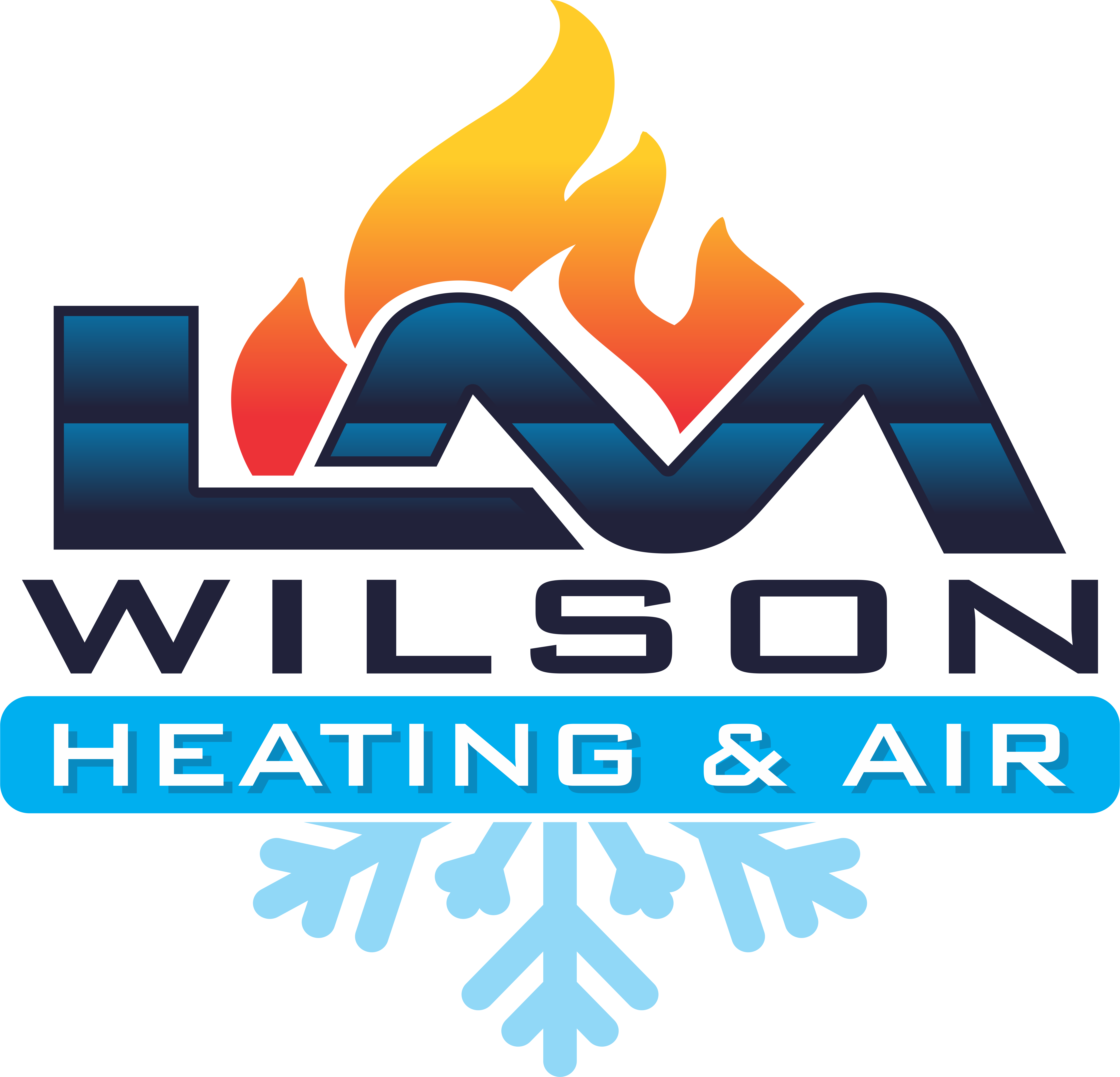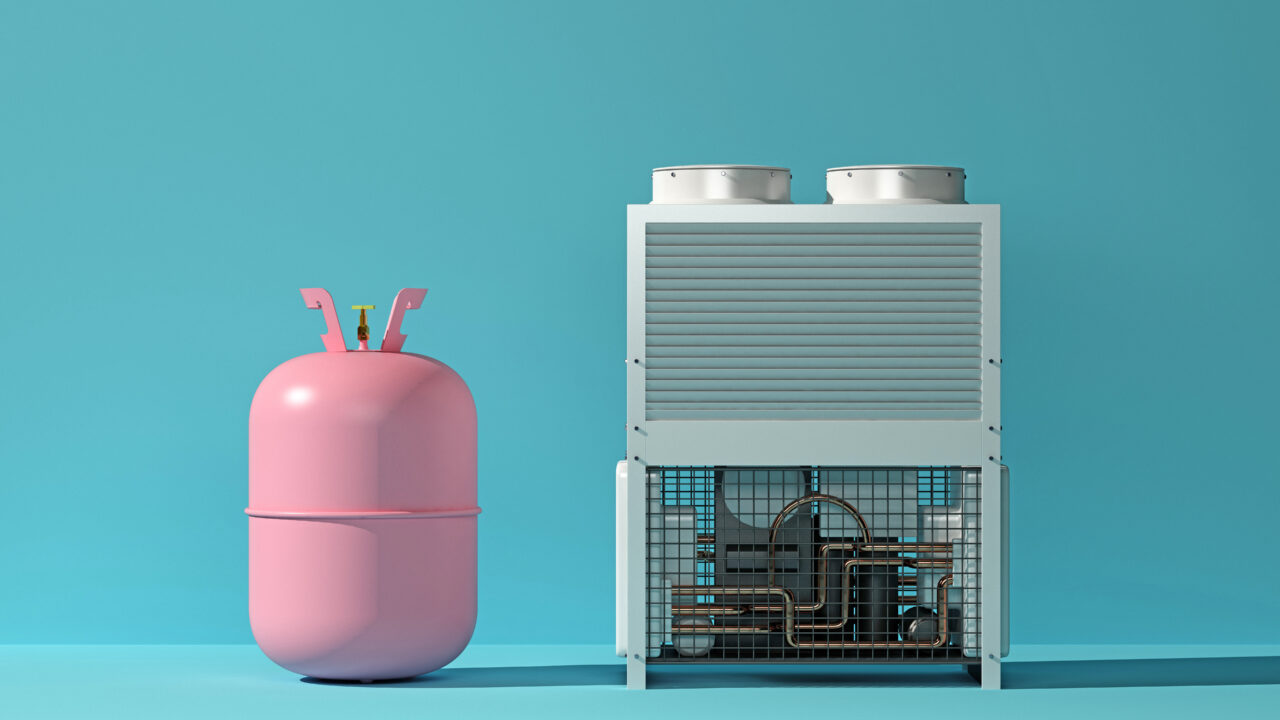As we move towards a more sustainable future, significant changes are on the horizon for the HVAC industry, particularly concerning freon usage. For residents of North Carolina, these changes will take effect in 2025, impacting both the environment and homeowners with HVAC units. At LM Wilson Heating & Air, we aim to keep you informed about these mandates and how you can prepare.
What Are the 2025 HVAC Freon Mandates?
Starting in 2025, the Environmental Protection Agency (EPA) will enforce new regulations phasing out the production and import of R-22 refrigerant, commonly known as Freon. This action is part of a broader initiative to reduce substances that deplete the ozone layer and contribute to climate change. While R-22 has been a mainstay in HVAC systems for decades, its environmental impact has prompted a shift towards more eco-friendly alternatives. The replacement refrigerant is commonly known as R-410A,
Differences Between R-22 and the New R-410A
Freon, or R-22, contains hydrochlorofluorocarbons (HCFCs), which are harmful to the ozone layer. When released into the atmosphere, HCFCs contribute to the depletion of the ozone layer, which protects the Earth from harmful ultraviolet radiation. This depletion can lead to increased risks of skin cancer, cataracts, and other health issues, as well as negative effects on ecosystems. As R-22 is phased out, newer, more environmentally friendly refrigerants are taking its place. One of the most common replacements is R-410A. Here’s a closer look at the differences between R-22 and R-410A:
Environmental Impact
- R-22 (Freon): Contains HCFCs, which contribute to ozone depletion and have a higher global warming potential (GWP).
- R-410A: Contains hydrofluorocarbons (HFCs), which do not deplete the ozone layer and have a lower GWP compared to R-22.
Efficiency and Performance
- R-22: Older HVAC systems designed for R-22 tend to be less efficient, requiring more energy to achieve the same cooling effect.
- R-410A: Systems designed for R-410A operate at higher pressures, making them more efficient and capable of better heat absorption, leading to improved performance and energy savings.
Compatibility
- R-22: HVAC systems designed for R-22 cannot use R-410A without significant modifications or replacements due to differences in pressure and lubricant requirements.
- R-410A: Requires equipment specifically designed to handle its higher pressure. Most new HVAC systems are designed to use R-410A, ensuring better performance and compliance with environmental regulations.
Cost and Availability
- R-22: As production stops, R-22 will become increasingly scarce and expensive, making maintenance and repairs more costly.
- R-410A: Readily available and expected to remain more stable in price, making it a more cost-effective choice for future HVAC needs.
What Does This Mean for Homeowners in North Carolina?
For homeowners with HVAC units that use R-22, the 2025 mandates will have several implications:
- Increased Costs: As the production of R-22 ceases, the existing supply will dwindle, driving up prices. Repairs and maintenance for older HVAC units using R-22 will become increasingly expensive.
- Availability Issues: With the phase-out, finding R-22 for recharging your system will become more challenging. This could lead to longer wait times and higher service costs.
- Environmental Responsibility: Transitioning to systems that use environmentally friendly refrigerants aligns with broader efforts to combat climate change and protect the ozone layer.
Preparing for the Transition
At LM Wilson Heating & Air, we recommend proactive steps to mitigate the impact of these changes:
- Evaluate Your Current System: If your HVAC unit is over 10 years old and uses R-22, it might be time to consider a replacement. Newer systems use refrigerants like R-410A, which are more efficient and environmentally friendly.
- Schedule a Consultation: Our team can assess your current system and provide recommendations tailored to your needs and budget. We can help you understand the benefits of upgrading to a new, compliant system.
- Plan for Replacement in 2024: To avoid the rush and potential price hikes as the 2025 deadline approaches, we advise scheduling your HVAC replacement in 2024. This way, you can take advantage of current prices and ensure a smooth transition.
Take Action Today
The upcoming HVAC Freon mandates in 2025 represent a significant step towards a greener future. At LM Wilson Heating & Air, we’re here to help you navigate these changes with ease. By planning ahead and replacing your HVAC system in 2024, you can avoid higher costs and contribute to a healthier environment.
Contact LM Wilson Heating & Air today at (336) 663-1370 to schedule your consultation and learn more about how we can assist you in upgrading your HVAC system. Together, we can make a positive impact on your comfort and the planet.


